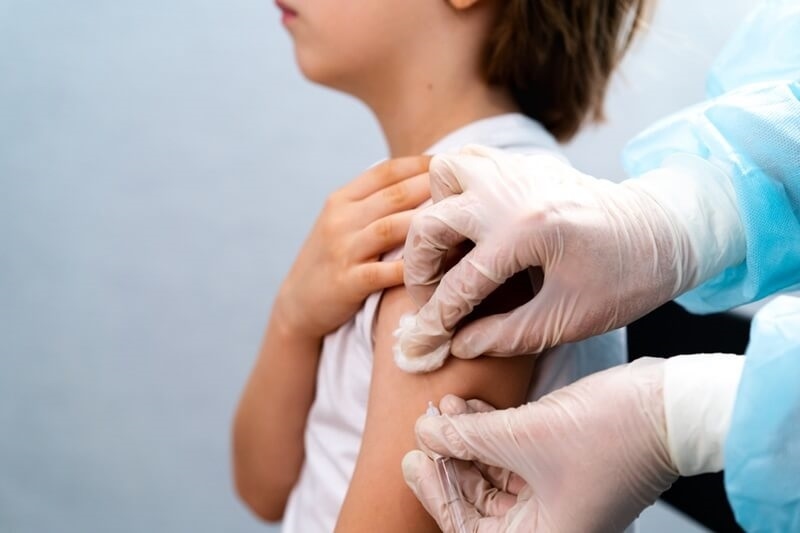
Knowing about vaccination schedules in EU countries is critical if you are living, working in, or just travelling through Europe. Vaccination schedules in the EU occur at slightly different times because of unique healthcare practices, incidence of diseases in different regions, and national immunization recommendations. Knowing which vaccines are recommended by health organizations-—and when - is important for individual health, but also for fulfilling national vaccination requirements of your host EU country.
In the first hundred words of this guide, we will highlight some key points on childhood vaccinations in Europe, adult immunization plans EU, and will also show the different vaccine schedules EU- and immunization schedules Europe from country to country.
Vaccination is still one of the greatest public health interventions for communicable disease prevention. Vaccination schedules implemented in EU countries are evidence-based strategies endorsed by national health authorities and harmonized with overarching advice from the European Centre for Disease Prevention and Control (ECDC) and the World Health Organization (WHO).
For residents and citizens of the EU, these timetables provide the basis for lifelong immunity, from infancy into adulthood and on into elderly life. Immunization schedules in Europe are implemented to provide vaccines at the most efficient times, reducing outbreaks and ensuring public health protection.

Childhood immunization is typically started in the first weeks after birth and carried on up through the teenage years. Here is a general summary of typical childhood vaccinations Europe wide, although specifics differ from country to country:
Most EU nations start with:
Every European country has its own country-specific vaccine schedules EU, but what follows is a general template that most adopt or modify.
Vaccination doesn't end in childhood. The adult immunization plans of EU countries are essential for sustaining herd immunity and shielding vulnerable populations.
In most EU nations, adults are also checked for having missed childhood vaccinations and for catch-up timetables.
Even though the EU encourages harmonized health strategies, country-specific vaccine schedules EU are present, and it is therefore necessary to refer to the official guidelines for every member state. Some key differences include:
Grasping these national vaccine timetables EU is especially important for cross-border workers, students, and long-term travelers within the EU.
Whether you’re relocating, studying abroad, or simply traveling, you’ll need to be aware of immunization timelines Europe recommends. A few tips to help you navigate this:
EU vaccination requirements are in connection to public spaces and institutions:
Some member states are even beginning to create digital vaccine passports that are linked to their health systems, which would simplify compliance checks.
Even with good coordination between the ECDC and various national ministries of health, there was difficulty in harmonizing vaccination schedules across the whole EU:
This creates a patchwork of systems that may leave both residents and visitors confused. Fortunately, the EU is creating 'platforms' to harmonise vaccination schedules across Europe and have equitable and high-quality care across borders.
Several EU countries have adopted digital immunisation records via national health portals or apps, which make it easier to verify the status of one's immunisation, receive reminders, and view their vaccination history—particularly helpful for parents, travelers, or care providers.
The success of mRNA COVID-19 vaccines has persuaded some EU countries to utilize mRNA technology for other diseases (e.g., seasonal influenza, respiratory syncytial virus [RSV]). These next-generation vaccines offer the promise of quicker development, better efficacy, and greater responsiveness to change.
The EU has made great strides by incorporating boys into the National HPV programs and demonstrating that it is important for every member of society - not just women - to prevent cancer caused by these viruses. A number of these projects and initiatives are coordinated with more general adult vaccination programs in the EU, or aimed at gender-neutral immunization and herd immunity.
Under the EU Health Union initiative, member states are working towards a shared digital health infrastructure. A priority objective is to ensure cross-border accessibility to vaccination data to enable seamless care for EU citizens who live, work, or travel across national borders.
Vaccination timelines available to an individuals in the European Union are essential for personal and community health. When planning for childhood vaccination schedules Europe, developing an adult immunization schedule EU or trying to determine country-specific vaccination schedules EU, you are complying and remaining protected with locally based, accurate, and updated information.
Follow and keep this in mind:
In today's interconnected Europe, knowing your health authorities' vaccination schedules and immunization responsibilities is critical to your betterment and well-being, the same way you would have your passport ready to travel. Protect yourself and others, and stay ahead of the curve by remaining equipped with timely immunizations.
This content was created by AI